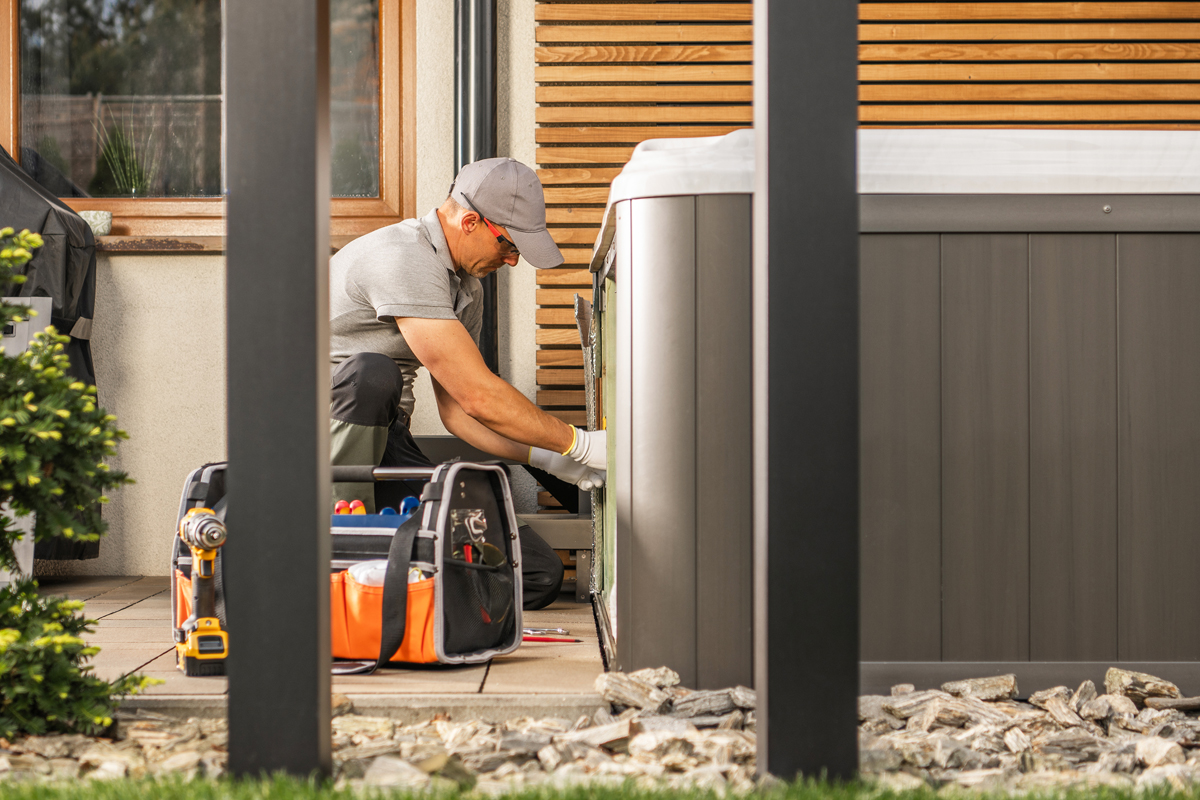Not Just Pools
Why service companies shouldn’t overlook portable hot tubs

When most people think of hot tubs, they imagine backyard relaxation or postworkout recovery. But for pool service professionals, hot tubs — particularly portable hot tubs — represent something else: an often-overlooked business opportunity.
These freestanding, above-ground models have surged in popularity. They’re relatively affordable, require no major construction and are well-suited for smaller spaces, renters and budget-conscious homeowners. They’ve also become a favorite amenity for Airbnb hosts and short-term rentals.
Despite this demand, many pool service companies treat portable hot tubs as an afterthought — or worse, avoid them entirely. But that’s a costly mistake, according to two business owners who have leaned into spa service.
Irelend Herrera, co-owner of Above & Beyond Pool and Hot Tub Cleaning in Austin, Texas, says there’s a large and growing market for portable hot tubs — one her company is well-equipped to serve.
“They are a lot different than in-ground pools, so it may be that some companies are concerned about being able to properly take care of them or sometimes even see them as a liability,” she says. “We are able to confidently navigate these concerns because of our experience.”
Herrera notes portable hot tubs often have more effective jet placement and design than built-in spas, making them especially appealing to older adults, athletes and health-focused customers.
Robert Didion, owner of It’s Too Hot Pool and Spa Service in Aubrey, Texas, agrees that avoiding hot tub service is a missed opportunity.
“Full-service companies are missing the mark by not diving into portable hot tub services,” he says. “There’s untapped potential here, as many folks with pools also have hot tubs and prefer expert help with maintenance. Pool pros already have the know-how; it’s a golden chance to expand.”
Didion believes a big reason service pros avoid portable hot tub work is the misconception that they need to be certified repair technicians. In reality, offering regular service, like drain-and-cleans, chemical balancing and filter maintenance, doesn’t require technical expertise.
“You can manage the maintenance and leave repairs to specialists,” he explains.
But with the right training and systems, both Herrera and Didion say hot tub service can become one of the most reliable, year-round revenue streams a business can offer.
For Above & Beyond, hot tub service isn’t just an add-on; it’s actually a third of its business. And because it’s one of the only companies in Austin offering hot tub and swim spa maintenance, word-of-mouth referrals have driven explosive growth. In just two years, the company has built a base of over 200 recurring service clients.
Didion reports similar benefits. Offering hot tub service has allowed him to cross-sell to existing pool clients while gaining new stand-alone spa owners through referrals.
“Promoting the convenience of drain-and-cleans and educating customers that hot tub maintenance services are available could really open up opportunities,” he says.
Even the equipment and labor needs are more manageable. Hot tub service, as both business owners note, is less physically demanding than pool service and often faster, especially with good systems and regular clients.
Didion adds that attention to detail matters, especially when dealing with expensive components.
“Mastering water chemistry and managing TDS is crucial,” he says. “You also have to be gentle with the equipment to avoid breakages.”
Both Didion and Herrera agree that while there’s a learning curve, it’s not insurmountable. Many manufacturers offer online certifications or training programs for water chemistry and equipment handling, which are worthwhile investments for any company looking to expand into hot tub service.
“Most of our clients don’t want to worry about learning how to DIY water care,” Herrera says. “They just want to relax. And that’s where we come in.”






